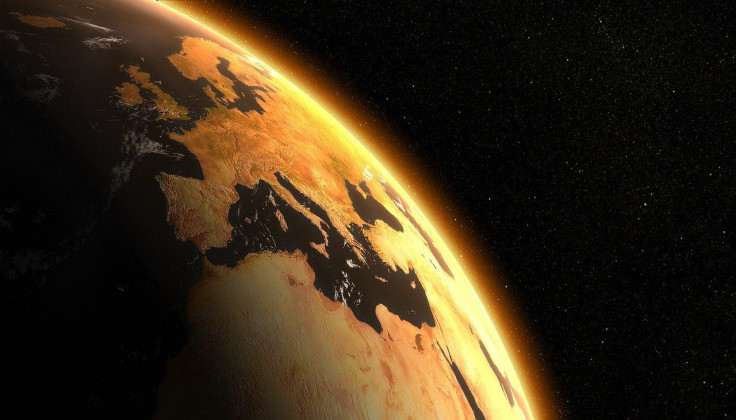New Mass Extinction: Study Suggests 'Neglected' Event Led To Dinosaur Takeover
KEY POINTS
- Researchers of a new study identified a new extinction event
- The event was likely caused by volcanic eruptions in what is now Canada
- It led to the rise of new ecosystems and possibly the domination of dinosaurs
A team of researchers has identified evidence of a new mass extinction event that remained "neglected" earlier. Scientists believe this particular event may have led to the rise of dinosaurs.
There are five known mass extinction events in the last 500 million years, each of which brought major changes that altered the course of the planet and its inhabitants. In these events, from the Ordovician-Silurian extinction 444 million years ago caused by massive glaciation to the Cretaceous-Paleogene extinction 66 million years ago believed to be caused by an asteroid strike, 75 to 90% of all species on the planet were practically wiped out.
Today, we are said to be in another mass extinction event brought about mainly by human activities that threaten millions of animal and plant species.
In a new study, researchers report a "previously neglected" mass extinction event in the history of the Earth. Dubbed the Carnian Pluvial Episode, the event that happened 232 to 234 million years ago is said to have killed a significant percentage of the biodiversity at the time but also triggered the dinosaurs' takeover of the world.
Based on the analysis of paleontological and geological evidence, the event is marked by a major climate change that lasted for about a million years, likely due to major volcanic eruptions in what is now western Canada. Noted by paleontologists since the 1960s but not identified as a major event for years, researchers say the event has affected both land and water biodiversity, wiping out some 33% of the marine biodiversity.
A mass extinction is defined by a 50% loss in biodiversity in a short amount of time. One of the study leads, Professor Mike Benton of the University of Bristol, told CNN that they have yet to estimate the amount of terrestrial biodiversity loss but it is likely that there has been a substantial loss in animal and plant biodiversity across the globe.

Interestingly, researchers also noted an emergence of new ecosystems and an explosion in biodiversity, from plants to animals and dinosaurs, just after the event.
"We now know that dinosaurs originated some 20 million years before this event, but they remained quite rare and unimportant until the Carnian Pluvial Episode hit," Benton said in a news release. "It was the sudden arid conditions after the humid episode that gave dinosaurs their chance."
Evidence reveals that the Carnian Pluvial Episode caused a major loss in biodiversity but it also led to the beginning of more modern ecosystems, encouraged the growth of new groups and gave rise to the dinosaur domination.
"We have identified another great extinction event, and it evidently had a major role in helping to reset life on land and in the oceans, marking the origins of modern ecosystems," another study lead, Jacopo Dal Corso of the China University of Geosciences at Wuhan, said in the news release.
The study is published in Science Advances.
© Copyright IBTimes 2024. All rights reserved.






















